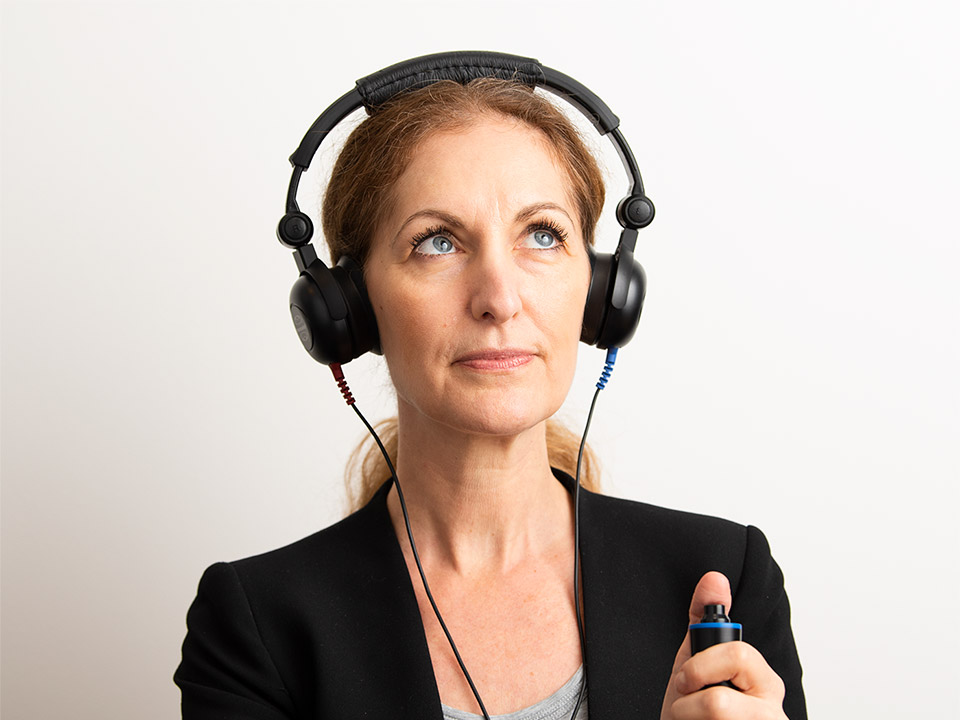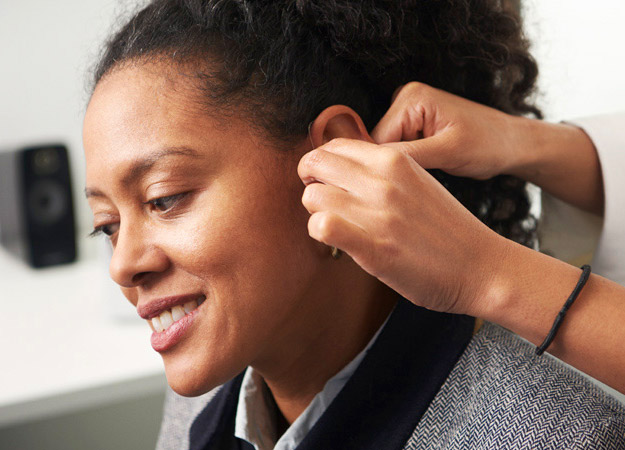Quiz yourself: Should I get my hearing checked?
Answer a few questions to see if you could benefit from a hearing assessment.*
The symptoms of hearing loss depend on the type, degree and cause of hearing loss.
If you recognize any of the symptoms listed below, we recommend getting a complimentary hearing assessment* at a hearing center near you.
If you or someone you know can relate to any of the signs of hearing loss listed above, then it may be an indication of hearing impairment, and you should get your hearing assessed.

Answer a few questions to see if you could benefit from a hearing assessment.*
Your answers indicate that you experience symptoms of hearing loss. We strongly recommend booking a hearing assessment in one of our hearing centers.
The result is an indication. An in-person hearing assessment can determine if you have a hearing loss.
Your answers indicate that you experience some symptoms of hearing loss. We recommend booking a hearing assessment in one of our clinics.
The result is an indication. An in-person hearing assessment can determine if you have a hearing loss.
Your answers do not indicate that you experience symptoms of hearing loss. However, if you experience trouble hearing, we recommend booking a hearing assessment in one of our hearing centers.
The result is an indication. An in-person hearing assessment can determine if you have a hearing loss.
The degree of hearing loss refers to the severity of the loss and is generally categorized as either mild, moderate, severe, or profound.
It can be measured in decibels (dB), referring to how loud sounds need to be for you to hear them.
Sensorineural hearing loss
The most common type of hearing loss is called sensorineural hearing loss. It can be caused by damage to tiny hair-like cells in the inner ear or damage to the auditory nerve.3 Often, this type of hearing loss can be treated with hearing aids.
Conductive hearing loss
This type of hearing loss comes from a mechanical problem in the middle or outer part of the ear. Conductive hearing loss can also be caused by an obstruction of some sort in the canal of the ear, such as earwax preventing sound from getting to the eardrum. It can be treated using hearing aids or other medical options.
Mixed hearing loss
Mixed hearing loss is when aspects of both sensorineural and conductive hearing loss are present.
Hearing loss is more common than you might think.
Understanding the source of your hearing issues gives our professionals insight into your needs, so we can advise you with the best options for your specific treatment. That's why we encourage you to speak with our experts as soon as you notice any hearing difficulties.
If you are looking for treatment for hearing impairment, we advise you to begin the process as soon as possible.
This is key to improving your quality of life, so that you can enjoy your favorite activities again – such as engaging in conversations with friends and family or watching your favorite TV show.

Hearing loss treatments include: earwax removal, hearing aids, surgery, cochlear implants or bone-anchored hearing solutions.
The best solution for your hearing loss will depend on:
Watch the video to learn what to expect when you visit a hearing center and receive a hearing assessment.

While there is no cure for loss of hearing, there are steps you can take to prevent it and reduce your chances of developing hearing loss over the course of your lifetime.
Learn more about healthy hearing practices and protection solutions that can help keep hearing loss at bay.
1. Kochkin, Sergei (2009) ”MarkeTrak VIII: 25-Year Trends in the Hearing Health Market” The Hearing Review, vol. 16, no. 11.
2. McCormack, A. & Fortnum, H. Why do people fitted with hearing aids not wear them? Int J Audiol. 2013 May; 52(5): 360–368.
3. Chisolm, T. H., Johnson, C. E., Danhauer, J. L., Portz, L. J. P., Abrams, H. B., Lesner, S., … Newman, C. W. (2007). A
systematic review of health-related quality of life and hearing aids: Final report of the American Academy of Audiology Task
Force on the Health-Related Quality of Life Benefits of Amplification in Adults. Journal of the American Academy of Audiology,
18(2), 151-183
4. Masterson EA, Bushnell PT, Themann CL, Morata TC. Hearing Impairment Among Noise-Exposed Workers — United States, 2003–2012. MMWR Morb Mortal Wkly Rep 2016;65:389–394. DOI: http://dx.doi.org/10.15585/mmwr.mm6515a2
5. Haile et al. Hearing loss prevalence and years lived with disability, 1990–2019: findings from the Global Burden of Disease Study 2019. The Lancet. 2021 March. https://doi.org/10.1016/S0140-6736(21)00516-X